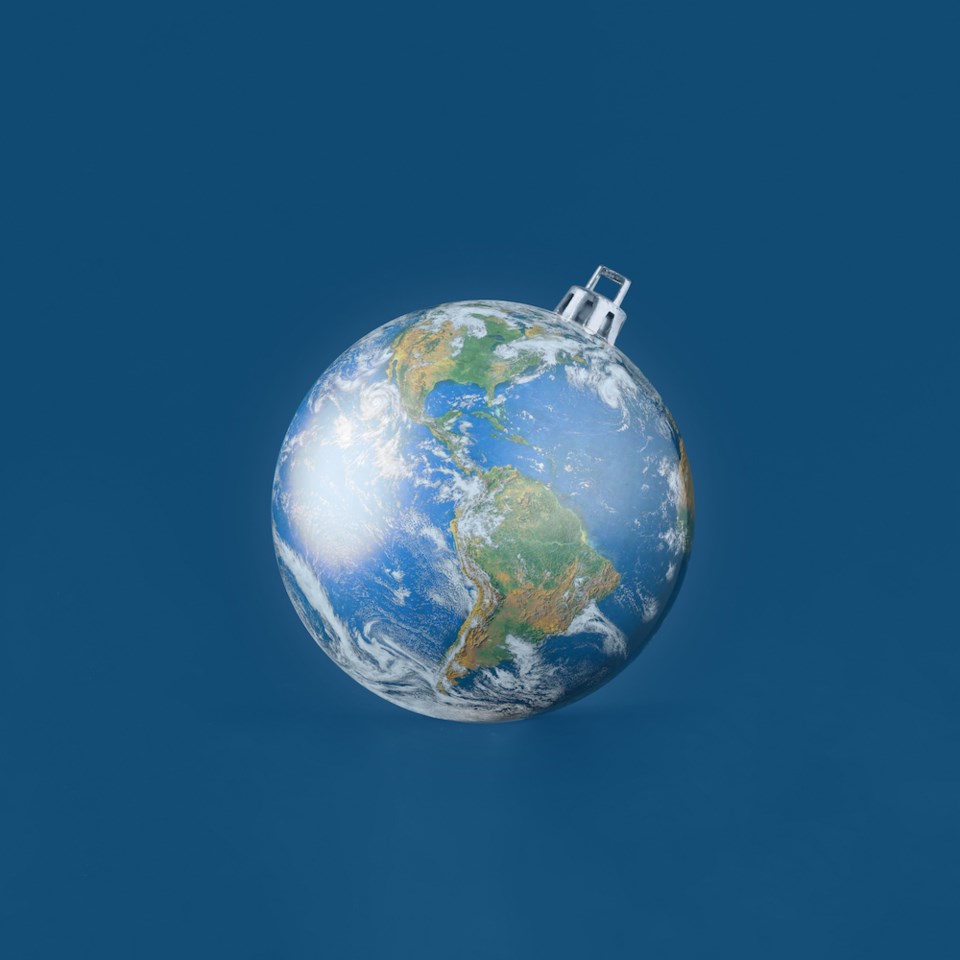Before December, I have usually already finished my holiday shopping. I try to spread it out over the year to offset the seasonal rush (read: stress) and budgetary impacts. I take my time looking for something special the recipient may not come across or think to buy themselves, and I always prioritize shopping local.
A gift is never just a gift. It says, “I thought of you.”
But this year, as I began watching holiday-related shows and movies, I came across an idea: a “present for the planet.” The character who spoke the phrase suggested to their partner that not buying each other a gift could actually be a gift in and of itself. In return, he was called a Scrooge, cheap, and dumped. How’s that for “it’s the thought that counts?”
No matter how it played out on screen, gift giving can be much more than a physical object. It’s no secret that consumerism runs rampant toward the end of the year, what with all the Black Friday sales begging for our coin. Shipping is free after a certain amount spent, but the true cost of shipping (i.e. carbon emissions) is still being added up in climate reports. That’s not to mention the fiasco of shipping last year, nor the rising costs of necessities like groceries. The only present I ordered online in 2021 never arrived, and was never accounted for. Did it end up at the bottom of the ocean trapped in one of the thousands of shipping containers that went overboard? I may never know.
In the last few years, there’s been a lot that feels out of our control but affects us all the same. And this is not to put a damper on seasonal festivities but to make the thought count:
Shop local — you’ll know what you’re getting far better than you would scouring reviews online, gifts will actually arrive on time, and you’ll keep those dollars local.
Speaking of local, you more than likely saw some of our many first responders volunteering even more of their time to collect money for those in need during Crash the Coast last weekend. In this paper you’ll also find a story about the many people involved in making Habitat for Humanity’s Sunshine Coast village a reality — including a very generous donor who left a large sum in his will. Also on Dec. 3, the Festival of Lights brought many together to celebrate. In one day, we saw three examples of different ways to give and to make our community a more welcoming place to live.
I recently got a call from Lana Brandt, a Sunshine Coast resident who is six months into her new role with the Rob Stewart Sharkwater Foundation. She has gift-giving on her mind too, as the foundation’s new Shark Free initiative launched on Nov. 30, sharing more than 100 cosmetic and personal product brands that declare their ingredients are shark free.
More than 100 million sharks are caught each year to meet the demand for a wide range of products, the foundation reports.
“Most people are unaware that endangered and threatened sharks are used in everyday products such as sunscreen, hair conditioner, and lip balm. Through awareness and collaboration, we are working with brands and companies of all sizes to improve industry practices,” Lana said in a press release. “Shark Free is also dedicated to empowering shoppers to use their buying power wisely as people typically want to do the right thing once they become aware of the issues.”
A gift is for the receiver, but also supports who you buy that gift from. As we soon put another year behind us, let’s look ahead and put our money where our morals are.



